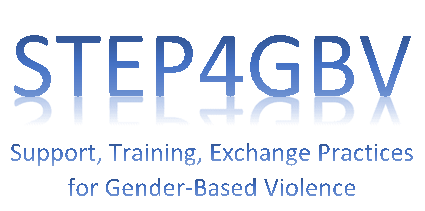Gender-based Violence (GBV) constitutes a fundamental violation of a person’s human rights. Approximately 1 in 3 women worldwide have experienced physical and/or sexual intimate partner violence, or non-partner sexual violence in their lifetime (WHO, 2013). Even though the topic progressively gets sufficient attention from decision and policy makers, it is still necessary to empower professionals and raise awareness of the public.
The Association for the Prevention and Handling of Violence in the Family (APHVF), a Cyprus based non-profit non-governmental organisation, is joining forces with experienced organisations in policies and activities which aim at combating GBV in 4 participating countries, to implement the newly appointed EU co-funded project “Step4GBV – Support, training, exchange practices for Gender-Based Violence”. The two year project (2018-2020) will be coordinated by APHVF and delivered in partnership with the following organisations:
- Cyprus Police, Cyprus
- CIPM (Centro Italiano per la Promozione della Mediazione), Italy
- Diaconia of the ECCB The Centre of Christian help in Prague, Czech Republic
- Salvamamme (Ass. I Diritti Civili nel 2000-Salvabebè/Salvamamme), Italy
- Demetra Association, Bulgaria
- Enoros Consulting Limited, Cyprus
The kick-off partnership meeting took place in Nicosia, Cyprus on the 30th of January 2018. The meeting was organised by APHVF, while representatives of all partner organisations participated. During the meeting, the consortium had the chance to overview the project, its objectives and activities, expected results, outputs and deliverables, as well as its timeline and methodology; while they discussed and planned the upcoming activities of the project.
The project STEP4GBV aims to increase the competencies of professionals via capacity building activities and, to develop and test new intervention methods package tools for victims’ support and perpetrators’ therapy. The project builds on evidence-based data and previous knowledge on gender-based violence, victims’ and perpetrators’ programs. Its activities will be achieved through mutual learning and exchange of good practices.
